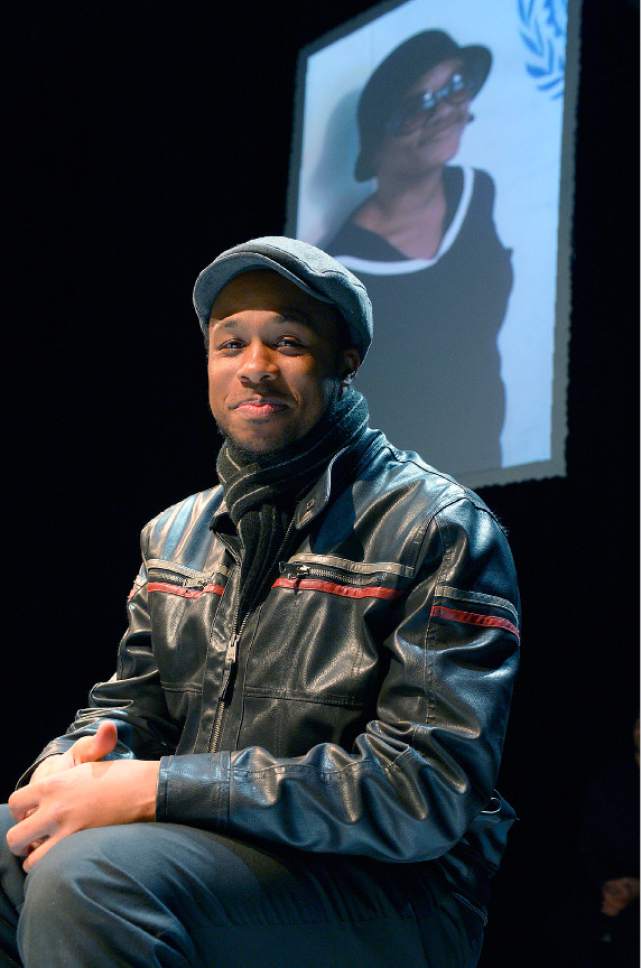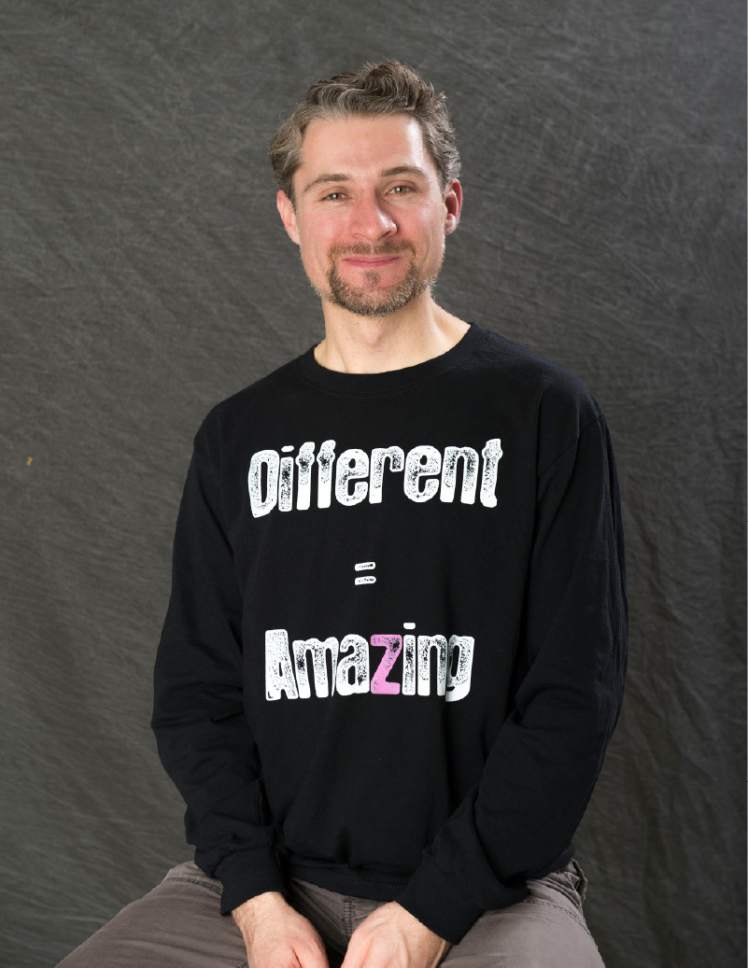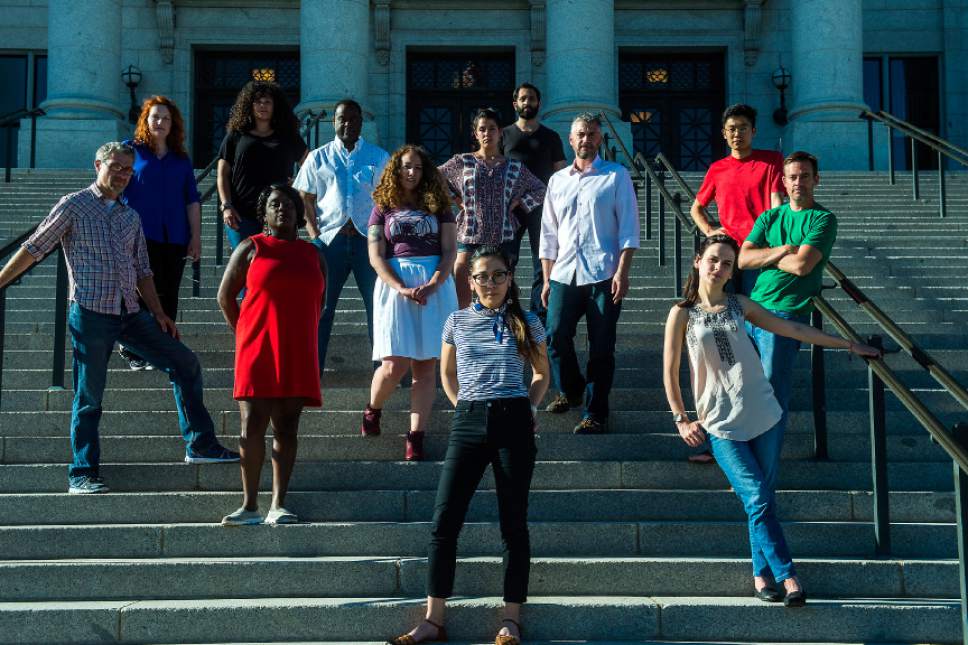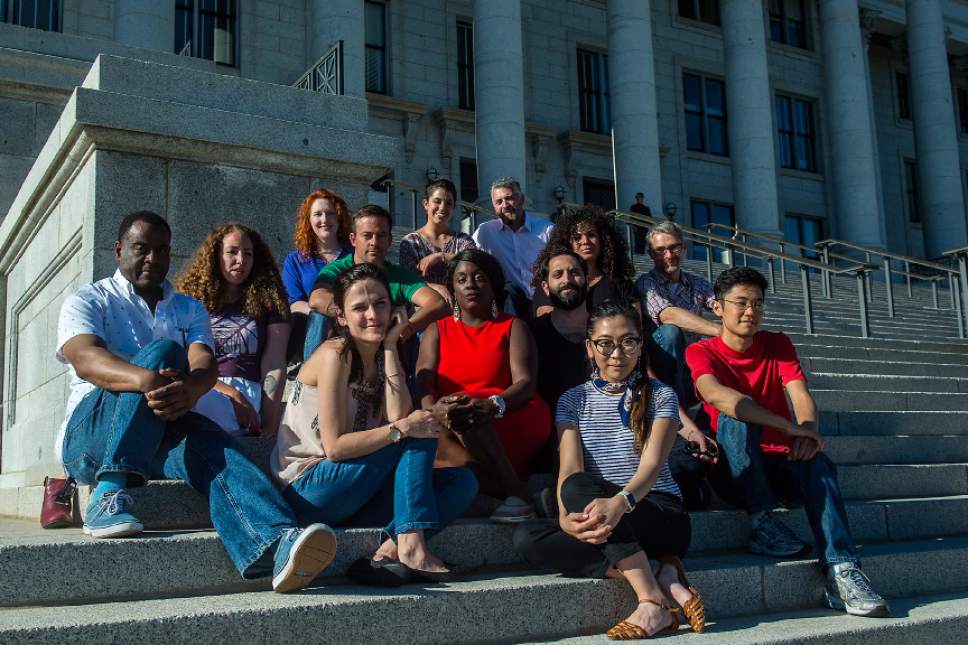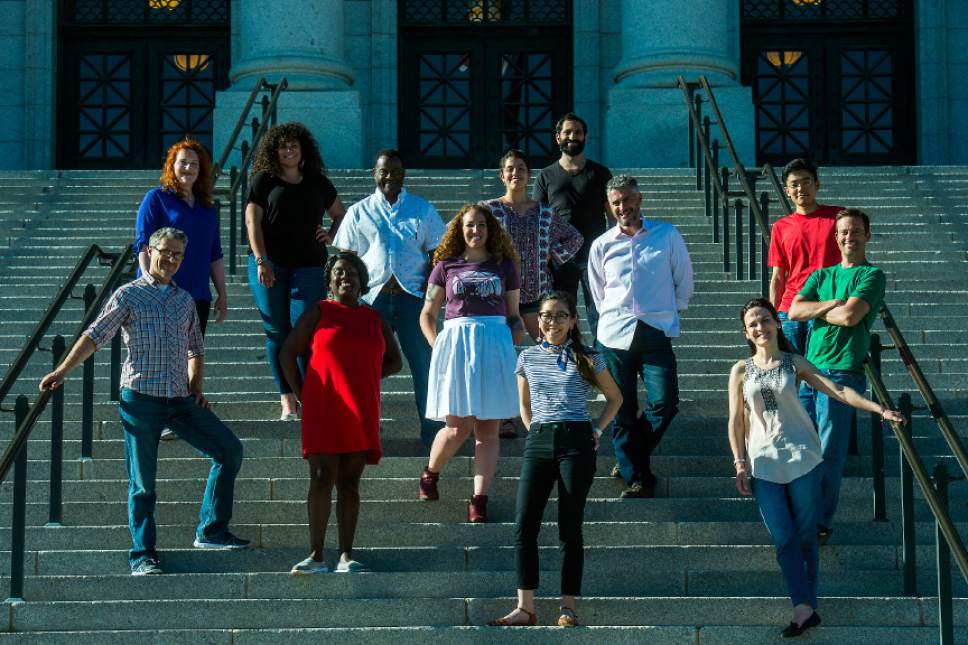This is an archived article that was published on sltrib.com in 2017, and information in the article may be outdated. It is provided only for personal research purposes and may not be reprinted.
Plan-B Theatre Company commissioned 12 Utah playwrights to write dual responses after America's divisive presidential election.
Each playwright was assigned to write a liberal and a conservative monologue, based on real people. The project, conceived in the hours immediately after the election, is an artistic experiment, says Jerry Rapier, Plan-B's artistic director.
Those monologues will be performed as "(in)divisible," an evening of staged readings, June 8-18 at the Rose Wagner Performing Arts Center's Studio Theatre. (See box for schedules. Tickets are free, but space is limited.)
The theater evenings are intended as conversation-starters at a time when people of all political persuasions feel their voices are not being heard, Rapier says.
What theatergoers won't hear are the names of U.S. President Donald J. Trump or Democratic presidential nominee Hillary Clinton, or any post-election quarterbacking. The names of politicians "have become adjectives, in some ways they've become verbs; they take over the conversation, and in some ways, they shut down the conversation," Rapier says. "We didn't want to get muddled and bogged down in all of that."
In early readings of the pieces, playwrights and producers were surprised to find how many of the works claimed moderate ground. "Attempting to understand somebody else's point of view does tend to move you away from your strongly held biases," Rapier says.
Several writers tapped unexpectedly raw emotions as they investigated their own bigotry and racism. Other pieces focused on issues of gender or class. "From the standpoint of the artists, I would hope there is something in this evening that would go home with everybody," says playwright Jenifer Nii.
Writing monologues for "(in)divisible" caused her to challenge her own racism, Nii says. Whenever she rolls her eyes after an acquaintance mistakes her Japanese heritage as Korean, she reminds herself "that I need a slap to the back of my head every bit as much, because that says something about me," she says. "Until I can own that, then I need to shut up about innocent mistakes."
She adds: "Now more then ever I want to understand characters and the sort of universality of our experience, even as it manifests differently."
For Morag Shepherd, the "(in)divisible" assignment prompted her to focus on gender issues. Throughout the election, she noticed how often women were silenced when they asked questions in public. At the same time, she felt she faced a different challenge then her male colleagues, as she didn't want to come across as a "screaming bitch" in her writing.
In workshopping the monologues, the writers found themselves arguing over the scripts. "There were a lot of discussions about gender and race," Shepherd says. "A lot of thought and consideration went into how it will affect the people who are going to hear it" and yet still offer authentic voices.
For Julie Jensen, hearing the works together prompted her to take a different tack. She says she heard touching and moving monologues, but little anger.
Her original drafts featured liberal and conservative voices, intended so that listeners wouldn't be able to tell which was which. "A cute irony," she says now.
She was prompted to rewrite her liberal monologue, to showcase a character who is "mad as hell, as mad as I am," she says. "I think irony is dead. I don't care about irony. I think if we don't do something and get successful with it, we lose it all."
The election has changed her life, she says, transforming her from an old-school liberal into a revolutionary. After a career of writing issue plays, she thinks the Trump administration's challenges to voting rights and environmental causes will transform her into a political writer.
What that means, she's not exactly sure. In the past, it's taken living with an idea about an issue for about 10 years before she found the art in it.
Now, she says, the American democratic experiment doesn't have that long to wait on artists to find their voices. "I don't think we have 10 years, so what are we going to do about it?" she said.
facebook.com/ellen.weist —
(in)divisible
Utah theater artists respond to the response to the election.
Playwrights • Austin Archer, Matthew Ivan Bennett, Carleton Bluford, Rachel Bublitz, Elaine Jarvik, Julie Jensen, Jennifer A. Kokai, Melissa Leilani Larson, Jenifer Nii, Eric Samuelsen, Morag Shepherd and Debora Threedy
Cast • Read by Joe Debevc, Lily Hye Soo Dixon, Dee-Dee Darby-Duffin, April Fossen, Mark Fossen, Bijan Hosseini, Bryan Kido, Tito Livas, Jayne Luke, Shane Mozaffari, JJ Neward, Nicki Nixon, Isabella Reeder, Matthew Sincell, Darryl Stamp, Jason Tatom and Alicia Washington
Artistic staff • Designed by Jesse Portillo, stage managed by Michael Johnson, directed by Jerry Rapier
When • Plays June 8-18: Thursday and Friday, 8 p.m.; Saturday, 4 and 8 p.m.; Sunday, 2 p.m.
Where • Rose Wagner Performing Arts Center's Studio Theatre, 138 W. 300 South, Salt Lake City
Tickets • Free, but required; planbtheatre.org
Running time • Two hours, including 10-minute intermission
Theatre artists of color • Plan-B Theatre invites Salt Lake City theater artists to a networking conversation about diversity in acting, writing, staging and designing.
When • Monday, June 12, 6 p.m.
Where • Studio Theatre, 138 W.300 South, Salt Lake City


